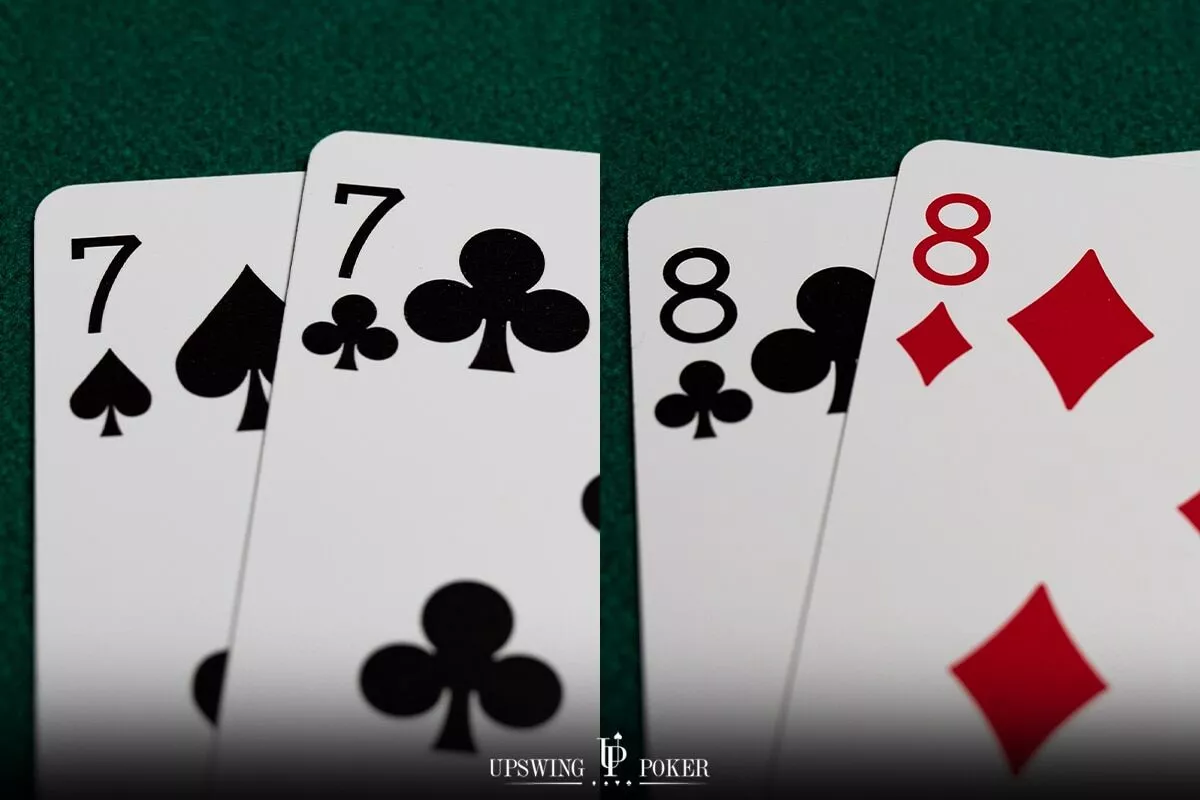
When poker players talk about middle pocket pairs, they are most likely referring to Pocket Tens to Pocket Sixes. That said, “average” can mean different things to different people, so it could be more like Pocket Nines to Fives depending on who you’re talking to.
These hands are often too strong to fold for 3-bets while also too weak for 4-bets. As a result, mid-range pocket pairs tend to make up a significant portion of our range, raising pre-flops and calling 3-bets. That’s why I’m writing this — so you know how to play this big chunk in your own right.
Tip #1: After hitting a set on the flop, don’t raise
You hit that jackpot, but don’t raise it right away.
I can hear some of you in my head right now:
But wait, Dan, in most of your articles you tell me to play fast my gamek hands? Why play slow in this case?
Here’s why: your deck is a pretty impregnable hand, and you’re playing with a very shallow stack-to-pot ratio (SPR).
This means there’s no need to immediately raise to defend or raise to take your entire stack on the river. With the pot full, you’ll most likely be able to get the stack in any event that the gamek fails.
In addition, you are in a position to ensure that you will always have the opportunity to increase the size of the pot. That decision is left to you and you alone.
Tip #2: If you have an excessive pairing, you should play it fast often gamek
So you want me to NOT raise the deck but raise it with a hand that is much weaker than the cards?
Correct. That’s because these pairings have a lot of worrying potential pass cards in the turn/river. Think of the following scenario:
You open-raise with 88 words Button. Small Blind re-raise and you call. The flop arrives and your opponent bets 75% of the c-bet pot.
Yes, your pairing is strong right now, but what happens when a 9, T, J, Q, K or Ace appears on your turn? Nothing good!
So, to prevent that from happening too often, you should raise these hands in small sizes to punish hands such as the weaker ones. And while doing this, you also get some value from hands like overcards with backdoor flush draw.
This increases your chances of being stacked by a higher duo, but the reward is worth the risk and the solver play in this position proves it.
One important note: if your opponent is a very tight player — a 3-bet with a super tight range pre-flop — then I won’t be able to raise these oversized pairs. on the flop. You’ll simply be up against a better pair more often than not. I might even consider discarding on the flop against such a player.
Tip #3: If you have a pocket pair with a straight draw, call (don’t raise) vs c-bet
These hands are similar to the sets from Tip #1 in the sense that they are fairly invulnerable — meaning there aren’t many turn/river cards to worry about.